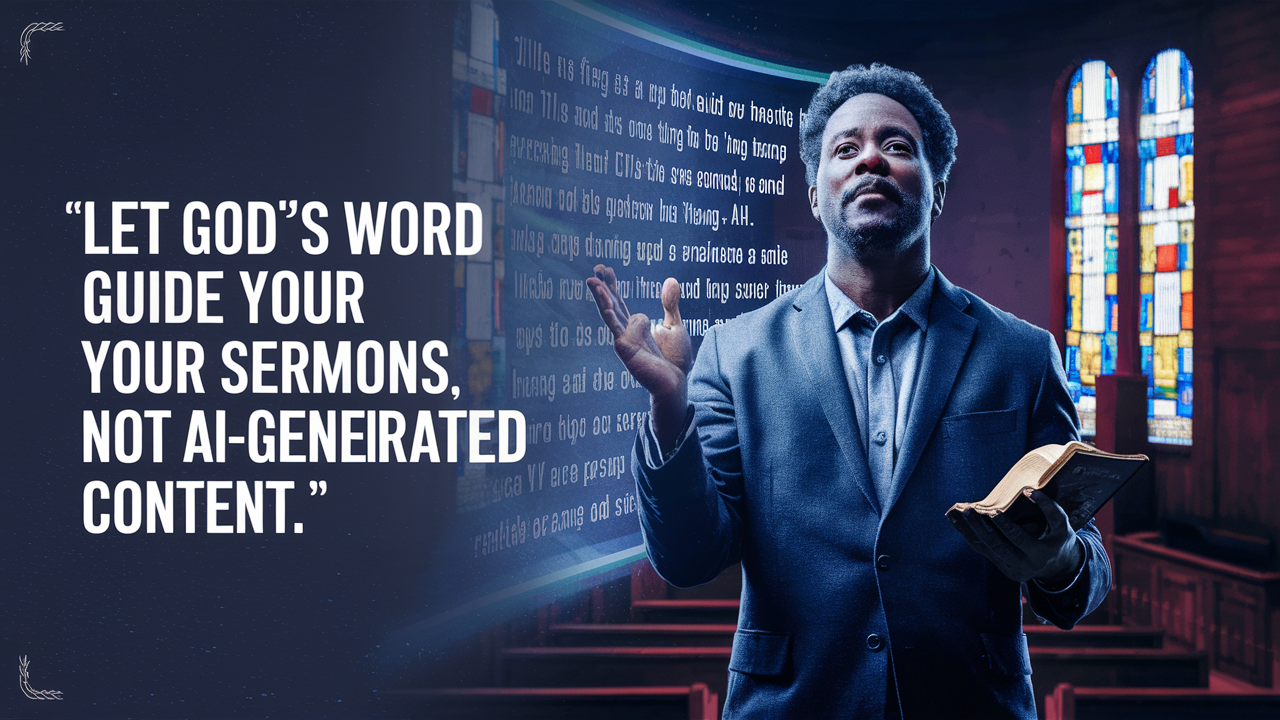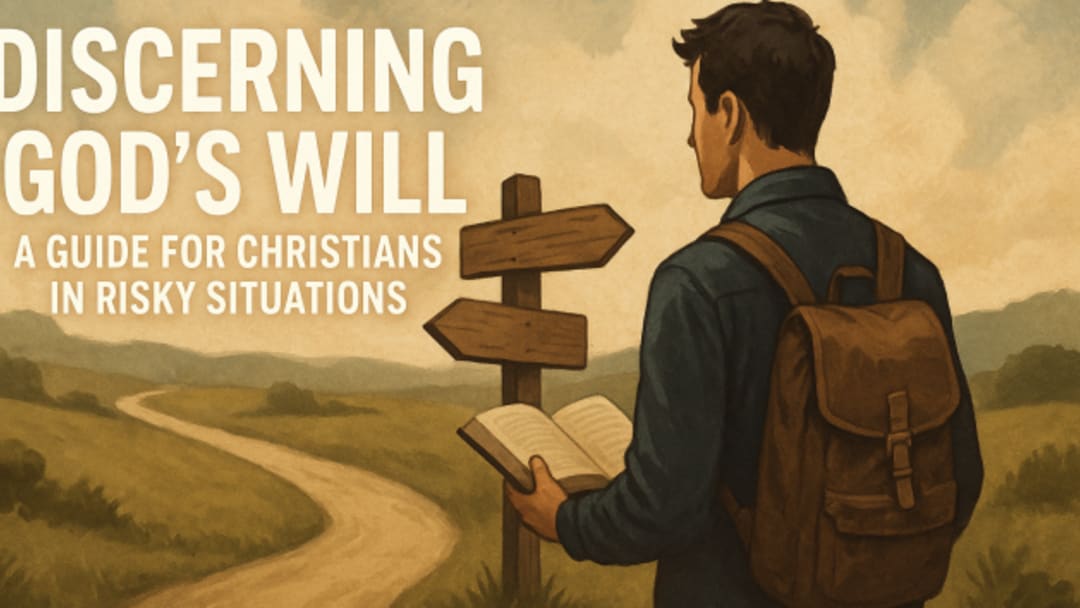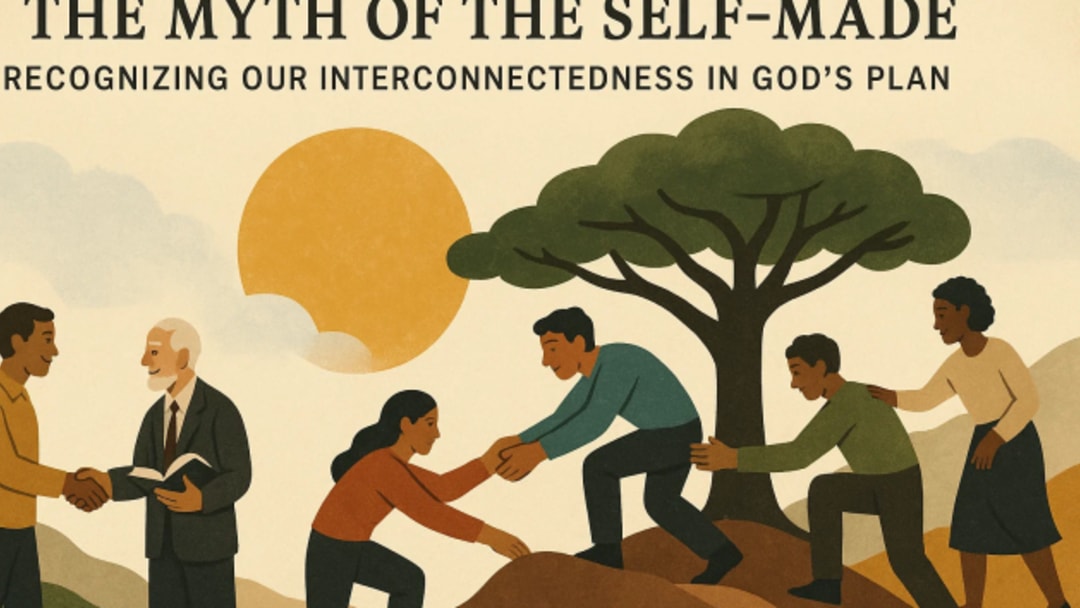Life is full of decisions, and some of the most challenging ones involve stepping into "risky situations." These aren't always physical dangers; they can be career changes with uncertain outcomes, ministry opportunities in challenging environments, relational confrontations that might lead to conflict, or financial investments with no guaranteed return. As Christians, our deepest desire in these moments is to align our choices with God's will. But how do we discern His leading when the path ahead is shrouded in uncertainty and potential peril? This guide explores timeless biblical principles for seeking God's guidance: through earnest prayer, diligent study of Scripture, the wisdom of godly counsel, and the gentle leading of the Holy Spirit.
Discerning God's Will: A Guide for Christians in Risky Situations
"Should I take this new job that requires relocating my family, even though the industry is volatile?" "Is God calling me to share my faith with a hostile acquaintance, knowing it might damage the relationship?" "Should our church invest in this new outreach program in a high-crime area, despite the limited resources and potential dangers?" These are the kinds of questions that can keep us up at night, caught between the desire to be faithful and the fear of making a wrong, costly decision.
The Bible doesn't promise us a detailed roadmap for every specific choice, nor does it guarantee a life free from risk. In fact, faith itself often involves stepping out into the unknown, trusting God's character even when His plan isn't entirely clear (Hebrews 11:1, 8). Scripture does provide us with a framework for discernment ora process through which we can prayerfully and wisely seek to understand and follow God's will, even when venturing into risky territory. This process is a relational journey of seeking the heart of our Heavenly Father.
The Foundation: Understanding God's Will

Before diving into the "how-to" of discernment, it's crucial to understand what we mean by "God's will." Theologians often speak of God's will in two primary ways:
- God's Sovereign (or Decretive) Will: This refers to God's ultimate, hidden plan by which He governs the universe and brings about His purposes. This will is always accomplished, whether we understand it or not (Ephesians 1:11; Isaiah 46:10). We cannot "miss" this will in the sense of derailing God's ultimate plans. This should give us a profound sense of peace: even our missteps can be redeemed and used by a sovereign God.
- God's Preceptive (or Moral) Will: This refers to God's revealed commands and moral guidelines for how we should live, as found in Scripture. This is the will we are called to obey (1 Thessalonians 4:3; Micah 6:8). It includes loving God and neighbor, living righteously, pursuing justice, and making disciples. Many of our decisions can be clarified simply by asking if a course of action aligns with God's revealed moral will.
- God's Will of Direction (or Individual Will): This is often what we mean when we ask, "What is God's will for my life in this specific situation?" This involves choices that are not explicitly commanded or forbidden in Scripture, such as which job to take, whom to marry, or where to live. It's in this area that discernment regarding risky situations becomes particularly pertinent.
While God's sovereign will is beyond our full comprehension, and His preceptive will is our clear duty, discerning His will of direction requires a combination of biblical wisdom, spiritual sensitivity, and often, courage. It's important to remember that God desires to guide His children (Psalm 32:8; Proverbs 3:5-6). Our part is to diligently seek Him.
Pillar 1: Fervent and Consistent Prayer
The starting point for any discernment process, especially concerning risky decisions, is prayer. Prayer is not merely informing God of our dilemma; it is entering into a conversation with Him, aligning our hearts with His, and seeking His wisdom and guidance.
Are there any commands I would be disobeying?
- What biblical principles apply to this situation (e.g., stewardship, love for neighbor, making disciples, prudence, faith)?
- What does Scripture say about the motives behind this potential decision (e.g., fear, greed, ambition, love, obedience)?
- Are there any biblical characters who faced similar types_of_risks? What can I learn from their successes or failures?
- Does this path allow me to better live out the Great Commandment (love God and neighbor) and the Great Commission (make disciples)?
- Meditate on Relevant Passages: Once you identify relevant principles or stories, spend time meditating on those Scriptures, asking the Holy Spirit to illuminate their meaning for your situation.
Pillar 3: Seeking Godly Counsel

God often guides His people through the wisdom and insight of other believers. Isolating ourselves when facing risky decisions can be foolish and dangerous. Seeking counsel is an act of humility and a recognition of the body of Christ.
The Value of Godly Counsel:
- Objective Perspective: Others can often see blind spots, unexamined motives, or potential consequences that we might miss because we are too emotionally involved in the situation (Proverbs 12:15: "The way of a fool is right in his own eyes, but a wise man listens to advice.").
- Diverse Experience and Wisdom: Different people bring different experiences, knowledge, and spiritual gifts to the table. One person might have practical wisdom related to the risk, another might offer spiritual discernment, and another might simply provide a compassionate listening ear.
- Accountability: Sharing your decision-making process with trusted counselors can provide accountability, helping you to stay true to biblical principles and to follow through on wise choices.
- Confirmation or Caution: If multiple, mature believers offer similar counsel (whether affirming or cautioning against a path), it can be a strong indicator of God's leading andor a necessary warning. Proverbs 15:22 says, "Without counsel plans fail, but with many advisers they succeed."
Who to Seek Counsel From:
- Mature Believers: Look for individuals who demonstrate spiritual maturity, a deep knowledge of Scripture, a consistent prayer life, and a track record of making wise decisions in their own lives.
- Those Who Know You Well: People who understand your strengths, weaknesses, character, and personal circumstances can often offer more tailored advice.
- Those with Relevant Expertise (if applicable): If the risky situation involves a specific area (e.g., finance, a particular ministry field, a cross-cultural move), seeking counsel from believers with experience in that area can be invaluable.
- **People always in a spirit of love and genuine concern for your well-being.
How to Approach Counsel:
- Be Humble and Teachable: Go with a genuine desire to listen and learn, not just to seek validation for a decision you've already made.
- Share Honestly and Thoroughly: Provide them with the full picture, including your own thoughts, fears, and perceived risks and benefits.
- Ask Good Questions: Don't just ask, "What should I do?" Ask for their perspective on the biblical principles involved, potential unforeseen consequences, or how they might approach a similar situation.
- Weigh Counsel Prayerfully: Ultimately, the decision is yours before God. Counsel is advice, not a directive. Take what you hear back to God in prayer and compare it with Scripture.
Pillar 4: Listening to the Holy Spirit

For the believer, the Holy Spirit is our indwelling Counselor, Guide, and Comforter (John 14:16, 26; John 16:13). Learning to discern His gentle leading is a vital part of navigating risky situations.
How the Holy Spirit Guides:
- Illuminating Scripture: The Spirit helps us understand and apply God's Word to our specific circumstances (1 Corinthians 2:10-14).
- Inner Promptings and Checks: Sometimes the Spirit gives an inner sense of peace and rightness about a certain path, or conversely, a sense of unease, a "check" in our spirit, or a feeling that something is "off." This is often subtle and needs to be tested against Scripture and godly counsel, as feelings can be misleading.
- Conviction of Sin: If a potential path involves sin or compromise, the Holy Spirit will bring conviction (John 16:8). Heeding this conviction is crucial.
- Providential Circumstances: The Spirit can work through circumstances, opening and closing doors in ways that guide our steps. circumstances alone are not a definitive guide; they must be interpreted in light of prayer, Scripture, and counsel. An open door is not always God's will if it leads to sin or violates biblical principles.
- Giving Peace: As mentioned under prayer, the Holy Spirit can grant a profound sense of peace about a decision, even if it involves risk and uncertainty (Colossians 3:15: "And let the peace of Christ rule in your hearts...").
Cultivating Sensitivity to the Spirit:
- Walk Closely with God: A consistent daily walk of prayer, Scripture reading, and obedience fosters sensitivity to the Spirit's voice. The more attuned we are to God in our daily lives, the easier it will be to discern His leading in major decisions.
- Test the Spirits: Not every inner prompting is from the Holy Spirit (1 John 4:1). Any leading must align with Scripture and the character of God. The Spirit will never lead you to do something that contradicts God's Word.
- Patience: Don't rush. Sometimes the Spirit's guidance unfolds gradually. Be willing to wait on the Lord.
- Community Discernment: Sometimes, the Holy Spirit's leading is confirmed through the unified sense of a praying community or trusted spiritual leaders.
Navigating the "Gray Areas" and Trusting God's Sovereignty

Sometimes, even after diligently applying these principles, the path forward in a risky situation may not be crystal clear. We might have prayed, searched the Scriptures, sought counsel, and listened for the Spirit, and still feel a degree of uncertainty. In these "gray areas," where multiple options seem biblically permissible:
- Consider Your God-Given Desires and Passions (aligned with His will): God often works through the desires He places in our hearts, especially when those desires are for His glory and the good of others (Psalm 37:4).
- Evaluate Your Gifts and Abilities: Which path best allows you to use the gifts God has given you for His service?
- Assess the Potential for Kingdom Impact: Which option seems to offer the greatest opportunity to advance God's kingdom and bring glory to His name?
- Make a Wise, Faith-Filled Decision: After doing your due diligence, you may need to make the wisest decision you can with the information and guidance you have, trusting God with the outcome.
- Trust God's Sovereignty: Remember God's sovereign will. Even if we make a decision that is not His "ideal" directional will (perhaps due to imperfect understanding), He is able to work all things together for the good of those who love Him (Romans 8:28). He can redirect, redeem, and teach us even through our less-than-perfect choices when our hearts are set on honoring Him.
Conclusion: Stepping Out in Faith, Not Blindness
Discerning God's will in risky situations is not about finding a risk-free path; often, the path of faith is the path of risk. It is about seeking to move forward in a way that is prayerful, biblically grounded, wisely counseled, and Spirit-sensitive. It's about exchanging blind leaps for informed faith-steps.
God does He does promise His presence, His wisdom, and His guidance to those who earnestly seek Him. As you face your own risky decisions, commit yourself to these pillars of discernment. Trust that as you diligently seek Him, He will make your paths straight (Proverbs 3:6), equipping you also to grow in intimacy with Him through the process. For ultimately, the journey of discernment is less about finding the "right answer" and more about finding more of God Himself.
FAQs

Q1: What if I pray and read the Bible, but I still don't feel a clear leading from the Holy Spirit? A1: This is a common experience. Sometimes God's guidance is more about wisdom and general principles than a dramatic, specific revelation. If you've diligently sought Him through prayer and Scripture, and the options before you are all biblically permissible and wise, it may be that God is giving you the freedom to choose based on sanctified wisdom and godly desires. Continue to seek counsel and be patient. Sometimes clarity comes in the stepping out, not before.
Q2: How can I distinguish the Holy Spirit's voice from my own desires or fears? A2: This is a key challenge in discernment. The primary test is Scripture: the Holy Spirit will never lead you contrary to God's Word. Other tests include: _ Fruit of the Spirit: Does the leading promote love, joy, peace, patience, kindness, goodness, faithfulness, gentleness, self-control (Galatians 5:22-23)? A leading driven by fear, greed, or selfish ambition is likely not from God. _ Confirmation from Godly Counsel: Do mature believers affirm this direction? _ Peace: Does it ultimately lead to a deep, settled peace in your heart, even if there's apprehension about the risk? _ Glorifying God: Is the primary motive to honor God?
Q3: Does that mean I didn't discern God's will correctly? A3: Not necessarily. First, we live in a fallen world, and sometimes difficult or painful things happen even when we are in God's will (e.g., Paul's shipwrecks and imprisonments). Second, God is sovereign and can use even our mistakes or difficult outcomes for His glory and our growth (Romans 8:28). The key is the faithfulness of your discernment process and your heart's desire to honor God. If you sought Him earnestly, He will be with you regardless of the outcome and can redeem any situation. Learn from the experience, seek His forgiveness if sin was involved, and trust His ongoing guidance.





